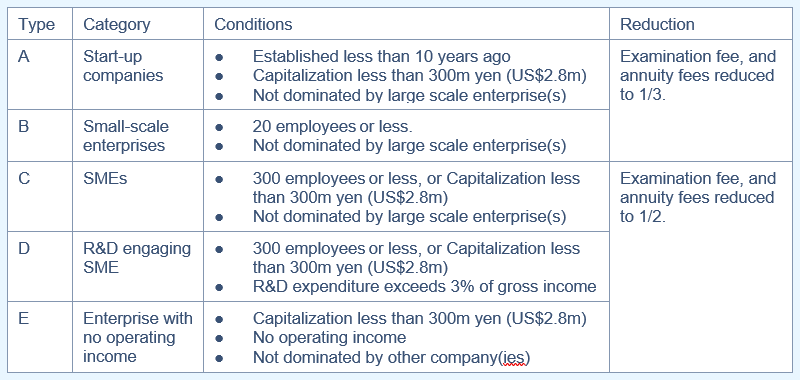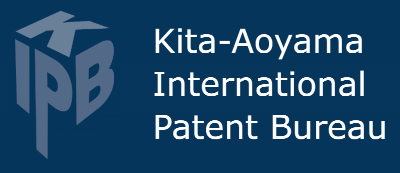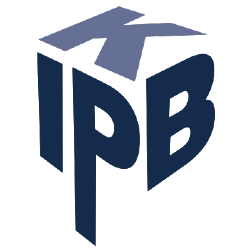Patent System Q&A
3. EXAMINATION
- Municipal Tax --> non-work-related income is less than JPY 1.5 million.
- Income tax --> income less than JPY 2.5 million
- Business tax --> real estate income and business income is less than JPY 2.9 million.
- Standard Examination - 9.5 months average (which is the fastest of the five major jurisdictions.)
- PPH - 3.0 months average
- Accelerated Examination - 2.7 months average
- Super-Accelerated Examination - 0.7 months average
What is the deadline for filing a request for examination in Japan?
An applicant (or any third party) must submit a "Request for examination" within three years of the filing date of the application.
In the case of PCT international applications, this should be three years from the international filing date, not the date the application entered the Japanese national phase. For applications under the Paris Convention, the time limit for requesting examination is three years from the Japanese filing date, not from the priority date.
*Note that for divisional applications, the deadline for requesting examination is 30 days from divisional filing date or 3 years from the parent filing date, whichever is later.
Is there an opportunity to recover applications that have missed the request for examination deadline?
Yes, applications that have missed a request for examination deadline can be recovered by submitting a statement explaining that the failure to meet the request deadline was due to ‘unintentional’ reasons, provided that (1) the request for recovery is made within certain time periods, and (2) an official surcharge fee is paid.
Note that some requests may still be denied automatically – including if the purpose for missing the request for examination deadline was to delay the examination.
For more details on Recovery, see OTHER QUESTIONS, Q4: Recovery of Application After Missed Deadline.
Can I make any voluntary amendments to my application at the examination request stage?
Yes, provided there is support in the specification, you are free to file any amendments - including new claims - at any time between initial filing* to a first office action, then within the designated response period specified in the office action (note that claim amendment restrictions may apply depending on the type of office action - see 4.4 "Final" and "Non-final" Office Actions.)
We recommend filing planned voluntary amendments with the request for examination because the examination fee depends on claim numbers that cannot be recouped later (see 3.5 Examination Fees). This also gives the applicant the opportunity to survey the art up till the point of the request to determine which claims are best to maintain or amend.
Note that for divisional applications, amendments to the parent claims will need to be made before a first office in order to avoid a rejection based on the same rejection as the parent.
Are there any advantages to reducing claims at the time of requesting examination?
Japan does not have an 'excess claims fee' policy like the US. Official examination request fees are calculated based on a fixed fee + a per claim fee for the total number of claims (see 3.5 Examination Fees). Since the JPO makes no distinction between independent or dependent claims (and there are no limits to how many can be filed) a large number of claims can be quite expensive. By reducing claims by amendment, the fee is obviously reduced.
Also, since the time frame between filing and examination is usually in years (i.e., examination is within three years from the international (PCT) or Japanese (Paris) filing dates), you may be able to judge outcomes of prosecutions elsewhere and adjust your claim strategy in Japan accordingly (by amending or reducing claims).
What are the fees for requesting examination?
JPO fees
●PCT filings:
JPY106,000 + JPY3,600 per claim for PCT cases with international filing dates before April 1, 2019.
JPY124000 + JPY3,600 per claim for PCT cases with international filing dates on or after April 1, 2019.
●Basic filings (including Paris route)
JPY138,000 + JPY4,000 per claim.
(Official fees may be reduced - see 3.6 Examination Fee Reduction.)
● Note that the per claim fees above are for each of the total number of claims (independent + (multi)dependent claims)
● Our KIPB attorney fee is a flat-rate JPY20,000 for all filings.
Is there any way to reduce examination fees?
Yes, the JPO has an official fee reduction scheme for various SMEs, individuals, start-ups and research institutes (universities), etc. If an applicant qualifies, examination fees will be reduced (to 1/2 or 1/3 the standard fee).
The process is simple and straightforward, and in principle there is no requirement to submit any documentary proof of eligibility at the time of applying. (Note: there are circumstances when this may still be required.)
The JPO's redcution scheme also applies to patent maintance fees for Years 1 to 10.
For individuals, the following qualifications are required for elegibility:
1) Individuals whose total from various income is less than JPY1.5million (fees exempted)
2) Individuals whose total from various income is less than JPY2.5million (fees reduced to 1/2 standard fees)
3) Individuals who belong to universities exclusively engaged in research (fees reduced to 1/2 standard fees).
General eligibility and the amount of fee reduction

The table is a simplified version of the JPO’s qualification requirements. The dollar figures in the table are calculated based on the exchange rate on June 18, 2020 and represent a general amount that applies to manufacturing firms, and may be subject to change. For other businesses, different qualification amounts are applicable. Please inquire with us for more definitive figures or if you want more information. Note that "not dominated by large-scale enterprise(s)" in the table means that the company is not under the management and direction of large enterprises (since, effectively, it would not be an SME).
Does the fee reduction scheme apply for individual inventors or small business owners?
The scheme is open to “sole proprietors” and “individuals (with modest means)”.
In Japan, a “Sole proprietor” refers to a person who employs 20 people or less (5 or less if commercial or service business), as evidenced by the submission of a notice of commencement of a commercial business to the tax office.
Foreign organizations equivalent to the Japanese “sole proprietor” can also qualify for the fee reduction scheme.
If you qualify, official examination fees and patent fees are reduced to 1/2 or 1/3 of the standard fees.
Qualifying as an "individual (with modest means)" involves certain conditions, such as exemption from municipal tax, income tax or business tax.
If you qualify, official Examination request fees and patent fees are either exempted or reduced to 1/2 standard fees depending on the qualification.
Please contact us if you think you or your client might qualify.
*The reduction scheme also applies to patent maintenance (annuity) fees.
Can I get a refund of the examination fee if I do not wish to pursue the application?
Yes, if examination has been requested, we can claim a 50% refund of the examination fee if we formally withdraw the application before the examination procedure has commenced (i.e., before an office action has been issued.) Applicants should carefully note that it cannot be predicted exactly when examination will commence in individual cases; however, JPO practice is to issue office action within about 10 months from the examination request on average.
A power of attorney form must be submitted with a formal Withdrawal request. We are not required to submit original hand-signed POAs for this procedure - all we need is the name and job title of the representative working for the applicant’s organization.
Does the JPO offer any ways to expedite the examination process?
Yes, there are currently three ways to expedite examination at the JPO:
(a) Accelerated Examination or
(b) Super Accelerated Examination
(Both for “foreign-related applications”)
OR
(c) Under the Patent Prosecution Highway (PPH) system (discussed in 3.9 below).
How fast are these options?
According to JPO figures in 2020, the time to first pendency (the time from examination request to first office action) is as follows under each option:
(a) Accelerated Examination
The request is usually filed with the Request for Examination. (Note: requests for Accelerated Examination for divisional applications are filed separately).
Types of applicable applications (i to vi):
i) Working-related applications (i.e., inventions already commercialized or shortly to be so);
ii) Internationally-filed applications (i.e., filed in both Japan and a foreign IP office);
iii) Applications filed by SMEs, individuals, universities, public research institutes etc.;
iv) Green-technology related applications;
v) Earthquake Disaster Recovery Support-related applications.
vi) The Asian Business Location Law-related applications.
Prior art search
The applicant should also include the results of a prior art search and a short comparison between the invention and the prior art, indicating the key differences, i.e.:
“The (XYZ) part of the present invention is not described in any of the prior art reference(s) and thus has an inventive step”."
Note that this type of accelerated examination allows the applicant to maintain all claims in the case of an internationally filed application designating Japan. In contrast, the PPH accelerated examination system (see 3.9 The Patent Prosecution Highway (PPH)) only allows claims that have been judged allowable in the earlier application in another jurisdiction from which the Japanese application derives (or are claims that narrow the scope).
(b) Super Accelerated Examination
Eligible applications:
(i) Examination requested, but the application remains unexamined.
(ii) The application is a “working-related application” and an “application having a foreign counterpart application” (see above).
(iii) The application has been filed online 4 weeks before the Request for Super Acceleration Examination, and all procedures have been carried out online.
(iv) The application cannot be withdrawn under Article 42(1) of the Japanese Patent Act.
Note that the response to the first office action should be filed within 30 days (standard period = 60 days) for domestic applicants and 2 months (standard period = 3 months) for foreign applicants.
(c) The Patent Prosecution Highway (PPH).
See 3.9 The Patent Prosecution Highway (PPH) for details of this program.
Fees
There are no official fees for accelerating examination.
Please contact us directly for our attorney fees (we aim to respond within one working day - call us if more urgent.)
Can I request accelerated examination under the Patent Prosecution Highway (PPH) program?
Yes, and since the JPO is one of the originators and main drivers of the program, we very much recommend it as an effective strategy in Japan to speed up the time to grant.
PPH Overview
PPH (Patent Prosecution Highway) is a fast-track patent examination scheme between participating counties that allows an applicant to request expedited examination of an application pending at one or more patent offices (Offices of Later Filing (OLF) or Offices of Later Examination (OLE)) when a corresponding application pending at another office (Office of Earlier Filing (OEF) or Office of Earlier Examination (OEE)) has been determined to have at least one patentable claim by Examination.
Note that all claims in the OLF/OLE application(s) must sufficiently correspond to the allowable claims of the OEF/OEE application, or at least be claims that are narrower in scope (this can be achieved by amendment if necessary.) Since dependent claims always add limitations to an independent claim, and are narrower in scope than the allowed independent claims
If an applicant wishes to accelerate examination maintaining the rejected OEF/OEE application claims, he/she should apply for accelerated examination under Japan’s domestic accelerated examination system (See 3.8 Accelerated examination)
Examination timeframe
As of January 1, 2022, both the JPO and the USPTO have committed to providing first office actions within 3 months of a request for examination for PPH applications. This also applies to subsequent office actions after a response by an applicant to a first office action under PPH.
Benefits of PPH
Since PPH enhances the use of search and examination results between patent offices, the applicant benefits from greater expediency, consistency and accuracy of examination, reduced number of actions and earlier patent decisions across the desired jurisdictions. Since standard examination at the JPO is highly respected for quality and is already faster than other IP5 countries, some international applicants may consider first filing in Japan as a way of quickly and successfully obtaining grants in other jurisdictions via PPH.
Participating countries
The JPO currently has bilateral PPH agreements with 46 IP offices. In terms of numbers, over 13,000 PPH application requests have been received at the JPO from the US, around 6,500 from the EPO and more than 1,200 from Korea (2020 JPO figures). In return, applicants filing in Japan have made over 22,500, 9,500 and 10,500 PPH application requests to the US, Korea and EP respectively.
Cautionary note
Whilst applications utilizing the scheme have an increased chance of allowance, it should be noted that the purpose is only for accelerating the examination process. Thus, allowance elsewhere is no guarantee of allowance in Japan. Japanese examination criteria differ from other jurisdictions, and examiners will base their judgment on this independently.
Normal PPH, PPH Mottainai and PCT-PPH
There are various types of PPH programs. For example, Normal PPH requires that the application be found patentable in the “office of first filing” in order to apply for PPH. PPH MOTTAINAI makes PPH available for applications found allowable/patentable in the 'office of earlier examination' (OEE) regardless of the Office of First Filing (OFF).
Are divisional applications possible under PPH?
Yes, for example, if an original counterpart application to the parent application (e.g., via a PCT or Paris route application) is granted after the parent in a jurisdiction signed up to the program. Divisional claims can be some or all of those in the granted original application.
We at KIPB Japan can provide all the details necessary if you wish to file under the PPH system.



